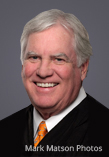AUSTIN – In a case raising high-stakes issues of employer liability for employee travel to and from work, the Texas Supreme Court has reversed and remanded lower court rulings involving a drilling crew’s deadly motor vehicle accident.
In a 6-2 decision issued April 13, the court said Amerimex Drilling I Ltd. was not entitled to summary judgment on the vicarious-liability claim brought by the survivors of two men killed in a July 2007 crash and another who was seriously injured. The court remanded the case for trial.
The workers were returning to employer-provided housing in their crew leader’s personal truck when it struck another vehicle and rolled over. The crew worked for Amerimex, which had been hired by Sandridge Energy Inc. to drill the wells. Part of the daily rate Sandridge paid Amerimex included a $50 daily bonus for the crew chief to drive his men to the well site south of Fort Stockton from the bunkhouse about 30 miles away.
Steven Painter, who was injured, and survivors of the two workers who died, sued Amerimex and Sandridge. The trial court granted summary judgment for Sandridge, a decision that was upheld on appeal.

Writing for the majority, Justice Debra Lehrmann said evidence shows the crew leader was driving workers from housing to the drill site as part of his assigned job duties to ensure the crew was available to work. The driver, who was also injured, was not involved in the appeal.
Amerimex had argued successfully both to the trial court and the El Paso Court of Appeals that it could not be vicariously liable because it exercised no control over such driving details as the route or means of transportation. Once the crew drove away from the site, Amerimex said, it was no longer subject to the company’s control.
The Supreme Court disagreed.
“Amerimex did not merely provide a travel allowance to its employees,” said Lehrmann. “It was contractually required to pay a specific crew member – the driller – a bonus for carrying out a specific task – driving the crew between the bunkhouse and the drilling site.”
A key issue was the “so-called coming-and-going rule,” under which an employee is generally not acting within the scope of his employment when traveling to and from work. The courts of appeals have recognized an exception to this rule when an employee has undertaken “a special mission at the direction of his employer” or is performing “a service in furtherance of [his] employer’s business with the express or implied approval of [his] employer.”
Both Painter and Amerimex relied on a 1981 decision from the U.S. Fifth Circuit Court of Appeals in Pilgrim v. Fortune Drilling Co. involving similar facts. In that case, an employee was in a car accident while driving his truck home after a shift. The court held that neither the long distance between the work site and the employees’ homes nor the payment of a travel allowance to one crew member per day was sufficient to create a special mission for the employer’s benefit.
The Texas Supreme Court said it did “not necessarily disagree with the Fifth Circuit’s conclusion in Pilgrim, but we hold that the distinguishing facts in this case warrant a different rule, at least at the summary-judgment stage.”
Dissenting justices would have held that the driver was not Amerimex’s employee for purposes of transporting the crew.

Justice Paul Green wrote the dissenting opinion, joined by Justice Jeff Brown. Green said the court should have applied the coming-and-going rule to reach the same result for Amerimex that it did for Sandridge in 2016.
“The Court has created a new standard under which the existence of an employer–employee relationship for any work negates the first step of our traditional vicarious liability analysis (asking whether, at the time of the negligent conduct, the employer had the right to control the progress, details, and methods of the injury-producing activity) and skips straight to the second step (asking whether, at the time of the negligent conduct, the employee was in the course and scope of employment),” said Green.
Justice Jimmy Blacklock did not participate in the decision.
Painter was represented by Peter Kelly of Houston’s Kelly, Durham & Pittard. Amerimex was represented by S. Anthony Safi of El Paso’s Mounce, Green, Myers, Safi, Paxson & Galatzan.
Read the majority opinion here and the dissenting opinion here.
